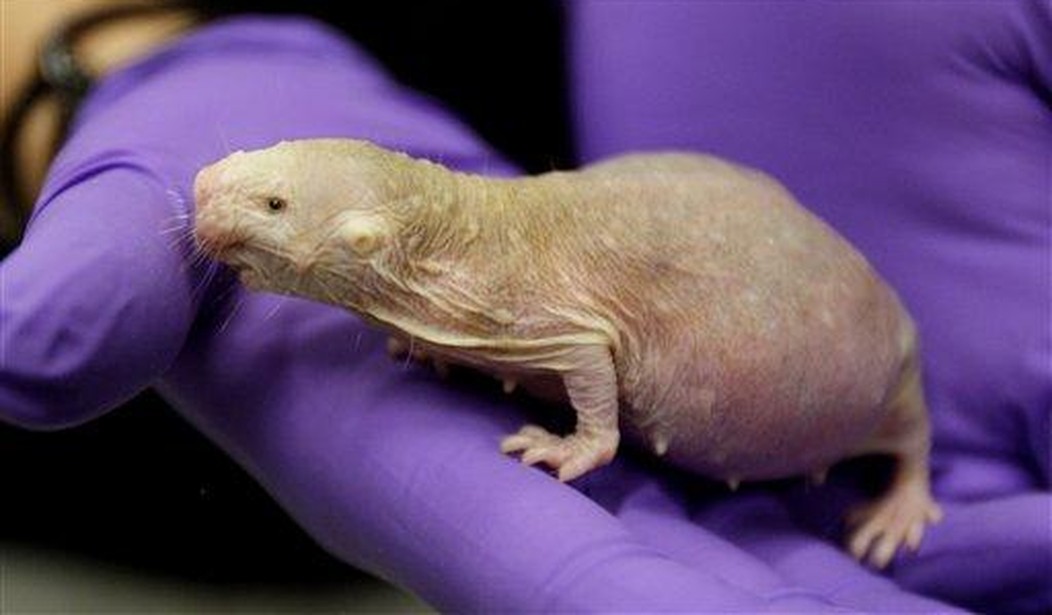Judicial Watch said Friday it received nearly 700 pages of records from the Department of Health and Human Services on the data Moderna submitted to the Food and Drug Administration about its COVID-19 vaccine.
The data was released as part of a Freedom of Information Act lawsuit, which was filed in September 2021 after the FDA, Centers for Disease Control and Prevention, and the National Institute for Allergy and Infectious Diseases did not respond to an earlier FOIA request.
Among the records is a “nonclinical overview” from Moderna showing a statistically significant number of rats from mothers who were given the vaccine born with skeletal deformations.
Here's how the study presented the finding:
mRNA-1273-related variations in skeletal examination included statistically significant increases in the number of F1 rats with 1 or more wavy ribs and 1 or more rib nodules. Wavy ribs appeared in 6 fetuses and 4 litters with a fetal prevalence of 4.03% and a litter prevalence of 18.2%. Rib nodules appeared in 5 of those 6 fetuses. Skeletal variations are structural changes that do not impact development or function of a developing embryo, are considered reversible, and often correlate with maternal toxicity and/or lack of other indicators of developmental toxicity (Carney and Kimmel 2007). Maternal toxicity in the form of clinical observations was observed for 5 days following the last dose (GD 13), correlating with the most sensitive period for rib development in rats (GDs 14 to 17). Furthermore, there were no other indicators of mRNA-1273-related developmental toxicity observed, including delayed ossification; therefore, these common skeletal variations were not considered adverse.
Recommended
While the study explains the findings "were not considered adverse" because they are "common," other research comes to different conclusions, Judicial Watch points out.
(Non-adverse deformations receive a different perspective in the July 2009 Environmental Research article, “Dose–response relationships of rat fetal skeleton variations: Relevance for risk assessment:”
(Whether or not a substance-induced increase in the incidence of fetal skeleton variations should be taken into account for human risk assessment is a long-standing controversial issue. It has been argued that chemical-produced increases in variations are not to be considered for risk assessment because they are “unlikely to adversely affect survival or health.” The counter argument is that even not being overtly adverse and conveying no apparent selective disadvantage, a treatment-induced increase in the occurrence of variations means that the chemical agent has the potential to perturb skeleton development. According to this view, under a different condition of exposure, or in another species, this perturbation of normal bone formation may give rise to a different and more severe outcome.))
A “Pharmacokinetics Written Summary” marked “Confidential,” indicates that the information it contains is related to the mRNA-1273 (Moderna vaccine) strain, however, much of the data comes from work with mRNA-1647. The study states:
The results of a biodistribution study of mRNA-1647 support the development of mRNA-1273. (Judicial Watch)
“These previously hidden records about the COVID-19 vaccine safety and efficacy studies raise a number of disturbing questions,” said Judicial Watch President Tom Fitton. “The fact that it has taken a federal lawsuit to get access to this material is yet another scandal.”
Judicial Watch received records from HHS regarding data Moderna submitted to FDA on mRNA COVID-19 vaccine, which indicate a "significant” number of rats were born w/skeletal deformations after their mothers were injected w/the vaccine. READ: https://t.co/gyihEa2xf9
— Judicial Watch ⚖️ (@JudicialWatch) January 13, 2023

























Join the conversation as a VIP Member